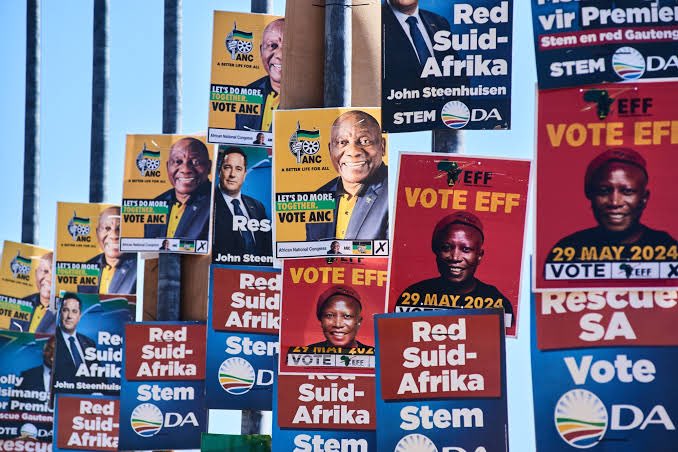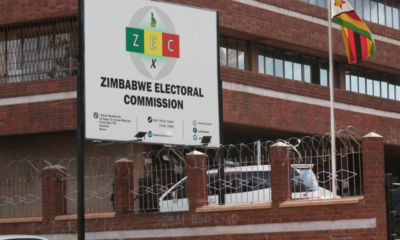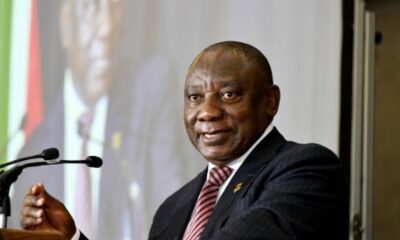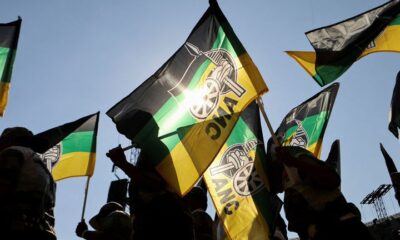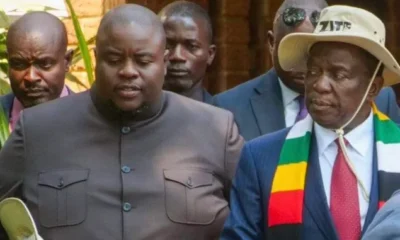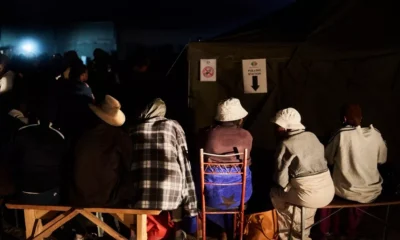BRENNA MATENDERE
POLITICAL analysts have implored the Zimbabwe Electoral Commission (Zec) to learn on how to run credible elections from the just-ended South African polls where the country’s Independent Electoral Commission (IEC) ensured real-time announcement of results while using a verifiable and transparent process.
The IEC put together a command centre in Johannesburg with a national dashboard of election results which were uploaded as soon as they were verified and audited.
At polling stations there were independent auditors of the counting process of votes, in addition to agents of political parties, in order to improve transparency and accountability.
Stephen Chan, professor of world politics at London University’s School of Oriental and African Studies, who spoke to The NewsHawks from the national command centre of the IEC in South Africa, said Zimbabwe must learn how South Africa exercised transparency in the elections.
“I am in Johannesburg monitoring the results coming through in real time. The electoral commission has a large centre and party representatives and journalists can gain accreditation and entry. Cameras are everywhere, with major TV stations present throughout,” Professor Chan said.
“It is extremely transparent. Some clumsiness in the conduct of parts of the election but, overall, it’s been as clean as a whistle. It’s quite hi-tech, but the transparency and immediacy is important. Because totals are announced as they are tabulated, there can be no adjustment afterwards.”
Political analyst Rashweat Mukundu said the key takeaway for Zimbabwe and particularly Zec from the South African elections is transparency.
Mukundu said unlike South Africa, elections in Zimbabwe are under the thumb of the military.
“The key issue is transparency. The Independent Electoral Commission of South Africa is an independent board that makes independent decisions; this is not the case with Zec. We know that Zec is under the thumb of Zanu PF and of the security sector in Zimbabwe. It cannot make independent decisions. It has to be told what to say, it has to be told how to act,” he said.
“Its budgets are controlled directly by the Treasury. The deployment [of Zec workers during elections] is made sometimes through Zanu PF without any due regard for professionalism and independence of those individuals who are deployed there. So, essentially the huge chasm between IEC and Zec is like night and day.”
Mukundu said if Zimbabwe is to get out of this political and immoral decay it has to conduct free, fair and credible elections in which leaders are elected by the people and are accountable to people.
“Right now our leaders are not elected by the people. There is an assumption that we elect our leaders, but these are people in many ways that are forced on the public. That there is imposition of councillors and MPs that were never elected by people of Zimbabwe is a clear example of a huge difference between South Africa and Zimbabwe,” he said.
Mukundu said the shambolic state of Zec makes it necessary to dismantle the electoral commission completely, before Zimbabwe can Zimbabwe Electoral Commission chairperson Justice Priscilla Chigumba. dream of reaching the standard of South Africa’s IEC.
“I think Zimbabwe is in many ways a failed state and sometimes what you need is a collapse of everything for you to rebuild. I am not hopeful that Zec is in any position to learn anything (because) there is absolutely no room or space for that, in my view,” he said.
Political analyst Vivid Gwede said Zimbabwe must learn that democratic elections are possible and that they are good for everyone involved.
“The South African election, happening just across the Limpopo River, testifies to how democratic elections are possible and good for everyone involved. The citizens had their chance to elect leaders freely, the Press to bear witness, and the parties, including the opposition, to campaign freely. The electoral commission exercised exemplary transparency,” Gwede said.
“The security institutions kept the peace impartially. Whoever wins will have the legitimacy they need to govern. South Africa shows that people do not need to agree on policies to hold free and fair elections. They just need to respect each other as equal citizens. These are all big lessons.”
In the August 2023 general elections in Zimbabwe, there was massive voter suppression in opposition strongholds where Zec failed to provide materials for voting in time leading to the voting process extended to the second day.
So discredited were the elections that even the Southern African Development Community condemned the glaring shortcomings.
The counting of votes, tabulation and announcement was not in real time. In the 2018 elections, opposition supporters protested the delay in the announcement of presidential results, resulting in six people being killed by the army as it violently crushed the demonstrations in central Harare.
In 2008, the election results were again withheld for six weeks as the opposition leader Morgan Tsvangirai outpolled Zanu PF leader Robert Mugabe in the first round.
